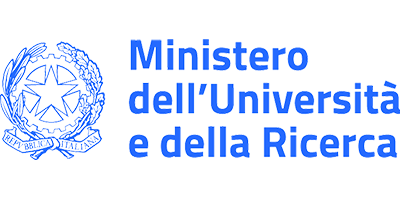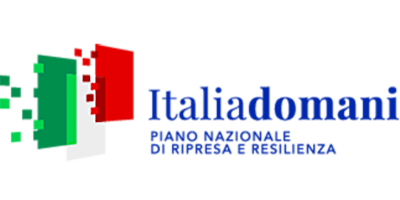DoCRA project
Doctoral Colloquium on Risk Analytics
A joint initiative of Collegio Internazionale Ca’ Foscari Venezia (team leader), IUSS Pavia, IMT Lucca, SISSA Trieste, Scuola di Studi Superiori Carlo Urbani in Camerino, Scuola di Studi Superiori Giacomo Leopardi in Macerata, Scuola Superiore F. Rossi in Torino, Scuola Superiore Universitario Di Toppo Wassermann in Udine.
Aims and scope
The Colloquium is an honour course for Doctoral students interested in analytical (both theoretical and applied) methods for the measurement, management and mitigation of risks. It is organized over four independent 2-week sessions.
Target
Students are PhD candidates from Italian or Foreign Universities, who remain affiliated with their Doctoral School.
The maximum size of a class per session is approximately 25. A group of up to 20 students will be offered full refund for travel and lodging expenses. Additional advanced- level students, including further Doctoral Students, Postdocs, Junior Faculty, or PhDs working in the industry, may be admitted at their own expenses.
Practical Information
Where. San Servolo Island, Venice.
When. Four two-weeks sessions between January 2025 and January 2026. The tentative calendar is the following:
- February, 23 – March, 8, 2025;
- July, 26 - August, 9, 2025;
- September , 14 - 27, 2025;
- January, 18 - 31, 2026.
How. Each session offers two courses. Each course is typically delivered over at least 20 hours in one week, combining frontal teaching, office hours/discussions, assignments and presentation of research by the students.
Applying. Students can apply for the first session by filling the form in the new DoCRA project page (see Practical Information > Applying). Applications already submitted through this DoCRA project page remain effective and do not need to be resubmitted. The application window for a session opens one week after the end of the preceding session.
See the file “Information for Students” below for more details.
Who. The Doctoral Colloquium is organized by the Collegio Internazionale, the Superior School at University Ca’ Foscari Venezia.
Steering Committee: Elisa Luciano (Chair, U. Torino and Collegio Carlo Alberto), Mavira Mancino (U. Florence).
Executive secretary: Marco Corazza (U. Ca' Foscari Venezia)
Advisory Board: Alessandro Armando (U. Genoa and IMT Lucca), Monica Billio (U. Ca' Foscari Venezia), Eugenio Coccia (National Commission for the prediction and prevention of major risks), Mariano Croce (U. Bocconi Milano), Giulia Di Nunno (U. Oslo), Marco Frittelli (U. Milano Statale), Mario Martina (IUSS Pavia), Marco Pagano (U. Napoli Federico II), Fabio Trojani (SFI and U. Torino)
Email. For information: colloquia.cicf@unive.it
Overview
There are four 2-weeks sessions. A session consists of two consecutive one-week courses, supplemented by one guest lecture on a topic of special interest. Each session can be chosen independently, but each two-week session must be attended in full.
Session 1: Modern risk measurement (23 February–8 March 2025)
Note: Students admitted to this session must have a knowledge of probability theory that includes at least what is treated in chapters 1-4 in Olofsson and Andersson, "Probability, Statistics, and Stochastic Processes", 2nd edition, 2012.
Week 1 (Monday 24/2 to Friday 28/2):
Measuring and comparing risks
- Lecturer: Alfred Muller, U. Siegen
- Contents: We cover modern mathematical methods for measuring and comparing risks, motivated by properties that are desirable in applications. We start with the comparison of risks, leading to the mathematical notion of order relations for probability measures (also known as stochastic orders). We discuss these concepts in detail, give an overview of recent research on their generalizations, and examine their robustness. We move on to the comparison of multivariate risks, where the dependence structure also plays a role. We discuss in particular the supermodular stochastic order to compare dependence structures, which includes the study of copulas and comonotonicity. We also consider the general relation between stochastic orders and the modern topic of optimal transport, which is a relatively new field of research.
- The second main topic are measures of risk that play an important role in actuarial or financial risks, in the form of premium principles or of regulatory capital requirements. We follow an axiomatic approach and discuss mathematical properties of such risk measures like coherence, convexity and elicitability. We discuss the properties of well-known examples including value-at-risk, conditional value at risk, expectiles, certainty equivalents, as well as principles based on mean and variance.
Guest Lecture (Friday 28/2):
Anatomy and physiology of a cat-risk model
- Speaker: Mario Martina, IUSS Pavia
Week 2 (Monday 3/3 to Friday 7/3):
Emerging risks for actuaries: NatCat insurance and climate change
- Lecturer: Hansjörg Albrecher, U. Lausanne
- Contents: Insurance of natural catastrophies: what is specific about it, what makes it different from other insurance sectors (premiums, capital) — Analysis of very heavy tails (some extreme value analysis, insurability when only finitely many moments exist) — Dependence models in this context — Quantify the pooling potential (diversification benefit in space and in time) — Assess the degree of climate change (a little flavor of time series analysis, non-stationarities, change points versus trend analysis) — Quantitative effects on the sensitivity of premiums and solvency capital for NatCat risks under climate change — Theory, concrete calculations, some case studies, exercises.
Session 2: New challenges on long-run risks (27 July–9 August 2025)
Note: Students admitted to this session must have basic knowledge in theoretical and empirical asset pricing (e.g., see topics reported in the J Chocrane book, "Asset Pricing"); financial econometrics (multivariate linear regressions; time-series econometrics; forecasting; GMM; GARCH; estimation of APT models).
Week 1 (Monday28/7 to Friday 1/8):
MacroFinTech
- Lecturer: Max Croce, U. Bocconi
Guest Lecture: TBA
- Speaker: TBC
Week 2 (Monday 4/8 to Friday 8/8):
Model free pricing and estimation of financial risks
- Lecturer: Fabio Trojani, SFI and U. Torino
Session 3: AI for Risk (14–27 September 2025)
Week 1 (Monday 15/9 to Tuesday 23/9):
Predictive uncertainty in Machine Learning with conformal inference
- Lecturer: Stefano Favaro, U. Torino and Collegio Carlo Alberto
Guest Lecture:
Introduction to CyberRisk
- Speaker: Alessandro Armando, U. Genoa and IMT Lucca
Week 2 (Monday 21/9 to Friday 25/9):
Concepts of Deep Learning and applications to Finance and Risk Management
- Lecturer: Christa Cuchiero, U. Vienna
Session 4: Networks and risk propagation (18–31 January 2026)
Week 1 (Monday 19/1 to Friday 23/1, 2026): Title TBD
- Lecturer: Remco Hofstad, Eindhoven U. of Technology
Guest Lecture:
Title TBD
- Speaker: Monica Billio, U. Ca’ Foscari Venezia
Week 2: (Monday 26/1 to Friday 30/1, 2026): Title TBD
- Lecturer: Alireza Tahbaz-Salehi, Northwestern University
Last update: 08/05/2025



